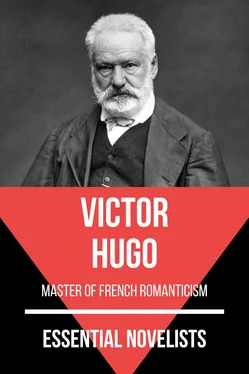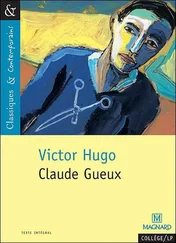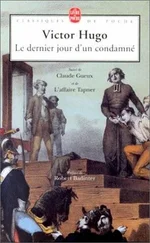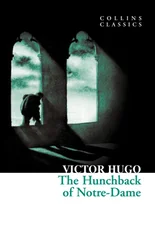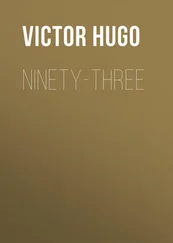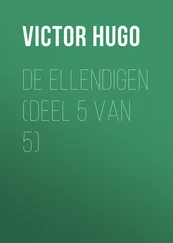On the day of battle, this hollow road whose existence was in no way indicated, bordering the crest of Mont-Saint-Jean, a trench at the summit of the escarpment, a rut concealed in the soil, was invisible; that is to say, terrible.
Chapter VIII
The Emperor Puts A Question To The Guide Lacoste
––––––––
SO, ON THE MORNING of Waterloo, Napoleon was content.
He was right; the plan of battle conceived by him was, as we have seen, really admirable.
The battle once begun, its very various changes,—the resistance of Hougomont; the tenacity of La Haie-Sainte; the killing of Bauduin; the disabling of Foy; the unexpected wall against which Soye’s brigade was shattered; Guilleminot’s fatal heedlessness when he had neither petard nor powder sacks; the miring of the batteries; the fifteen unescorted pieces overwhelmed in a hollow way by Uxbridge; the small effect of the bombs falling in the English lines, and there embedding themselves in the rain-soaked soil, and only succeeding in producing volcanoes of mud, so that the canister was turned into a splash; the uselessness of Piré‘s demonstration on Braine-l’Alleud; all that cavalry, fifteen squadrons, almost exterminated; the right wing of the English badly alarmed, the left wing badly cut into; Ney’s strange mistake in massing, instead of echelonning the four divisions of the first corps; men delivered over to grape-shot, arranged in ranks twenty-seven deep and with a frontage of two hundred; the frightful holes made in these masses by the cannon-balls; attacking columns disorganized; the side-battery suddenly unmasked on their flank; Bourgeois, Donzelot, and Durutte compromised; Quiot repulsed; Lieutenant Vieux, that Hercules graduated at the Polytechnic School, wounded at the moment when he was beating in with an axe the door of La Haie-Sainte under the downright fire of the English barricade which barred the angle of the road from Genappe to Brussels; Marcognet’s division caught between the infantry and the cavalry, shot down at the very muzzle of the guns amid the grain by Best and Pack, put to the sword by Ponsonby; his battery of seven pieces spiked; the Prince of Saxe-Weimar holding and guarding, in spite of the Comte d’Erlon, both Frischemont and Smohain; the flag of the 105th taken, the flag of the 45th captured; that black Prussian hussar stopped by runners of the flying column of three hundred light cavalry on the scout between Wavre and Plancenoit; the alarming things that had been said by prisoners; Grouchy’s delay; fifteen hundred men killed in the orchard of Hougomont in less than an hour; eighteen hundred men overthrown in a still shorter time about La Haie-Sainte,—all these stormy incidents passing like the clouds of battle before Napoleon, had hardly troubled his gaze and had not overshadowed that face of imperial certainty. Napoleon was accustomed to gaze steadily at war; he never added up the heart-rending details, cipher by cipher; ciphers mattered little to him, provided that they furnished the total—victory; he was not alarmed if the beginnings did go astray, since he thought himself the master and the possessor at the end; he knew how to wait, supposing himself to be out of the question, and he treated destiny as his equal: he seemed to say to fate, Thou wilt not dare.
Composed half of light and half of shadow, Napoleon thought himself protected in good and tolerated in evil. He had, or thought that he had, a connivance, one might almost say a complicity, of events in his favor, which was equivalent to the invulnerability of antiquity.
Nevertheless, when one has Bérésina, Leipzig, and Fontainebleau behind one, it seems as though one might distrust Waterloo. A mysterious frown becomes perceptible in the depths of the heavens.
At the moment when Wellington retreated, Napoleon shuddered. He suddenly beheld the table-land of Mont-Saint-Jean cleared, and the van of the English army disappear. It was rallying, but hiding itself. The Emperor half rose in his stirrups. The lightning of victory flashed from his eyes.
Wellington, driven into a corner at the forest of Soignes and destroyed—that was the definitive conquest of England by France; it was Crécy, Poitiers, Malplaquet, and Ramillies avenged. The man of Marengo was wiping out Agincourt.
So the Emperor, meditating on this terrible turn of fortune, swept his glass for the last time over all the points of the field of battle. His guard, standing behind him with grounded arms, watched him from below with a sort of religion. He pondered; he examined the slopes, noted the declivities, scrutinized the clumps of trees, the square of rye, the path; he seemed to be counting each bush. He gazed with some intentness at the English barricades of the two highways,—two large abatis of trees, that on the road to Genappe above La Haie-Sainte, armed with two cannon, the only ones out of all the English artillery which commanded the extremity of the field of battle, and that on the road to Nivelles where gleamed the Dutch bayonets of Chassé‘s brigade. Near this barricade he observed the old chapel of Saint Nicholas, painted white, which stands at the angle of the crossroad near Braine-l’Alleud; he bent down and spoke in a low voice to the guide Lacoste. The guide made a negative sign with his head, which was probably perfidious.
The Emperor straightened himself up and fell to thinking.
Wellington had drawn back.
All that remained to do was to complete this retreat by crushing him.
Napoleon turning round abruptly, despatched an express at full speed to Paris to announce that the battle was won.
Napoleon was one of those geniuses from whom thunder darts.
He had just found his clap of thunder.
He gave orders to Milhaud’s cuirassiers to carry the table-land of Mont-Saint-Jean.
Chapter IX
The Uexpected
––––––––
THERE WERE THREE THOUSAND five hundred of them. They formed a front a quarter of a league in extent. They were giant men, on colossal horses. There were six and twenty squadrons of them; and they had behind them to support them Lefebvre-Desnouettes’s division,—the one hundred and six picked gendarmes, the light cavalry of the Guard, eleven hundred and ninety-seven men, and the lancers of the guard of eight hundred and eighty lances. They wore casques without horse-tails, and cuirasses of beaten iron, with horse-pistols in their holsters, and long sabre-swords. That morning the whole army had admired them, when, at nine o’clock, with braying of trumpets and all the music playing “Let us watch o’er the Safety of the Empire,” they had come in a solid column, with one of their batteries on their flank, another in their centre, and deployed in two ranks between the roads to Genappe and Frischemont, and taken up their position for battle in that powerful second line, so cleverly arranged by Napoleon, which, having on its extreme left Kellermann’s cuirassiers and on its extreme right Milhaud’s cuirassiers, had, so to speak, two wings of iron.
Aide-de-camp Bernard carried them the Emperor’s orders. Ney drew his sword and placed himself at their head. The enormous squadrons were set in motion.
Then a formidable spectacle was seen.
All their cavalry, with upraised swords, standards and trumpets flung to the breeze, formed in columns by divisions, descended, by a simultaneous movement and like one man, with the precision of a brazen battering-ram which is effecting a breach, the hill of La Belle Alliance, plunged into the terrible depths in which so many men had already fallen, disappeared there in the smoke, then emerging from that shadow, reappeared on the other side of the valley, still compact and in close ranks, mounting at a full trot, through a storm of grape-shot which burst upon them, the terrible muddy slope of the table-land of Mont-Saint-Jean. They ascended, grave, threatening, imperturbable; in the intervals between the musketry and the artillery, their colossal trampling was audible. Being two divisions, there were two columns of them; Wathier’s division held the right, Delort’s division was on the left. It seemed as though two immense adders of steel were to be seen crawling towards the crest of the table-land. It traversed the battle like a prodigy.
Читать дальше
